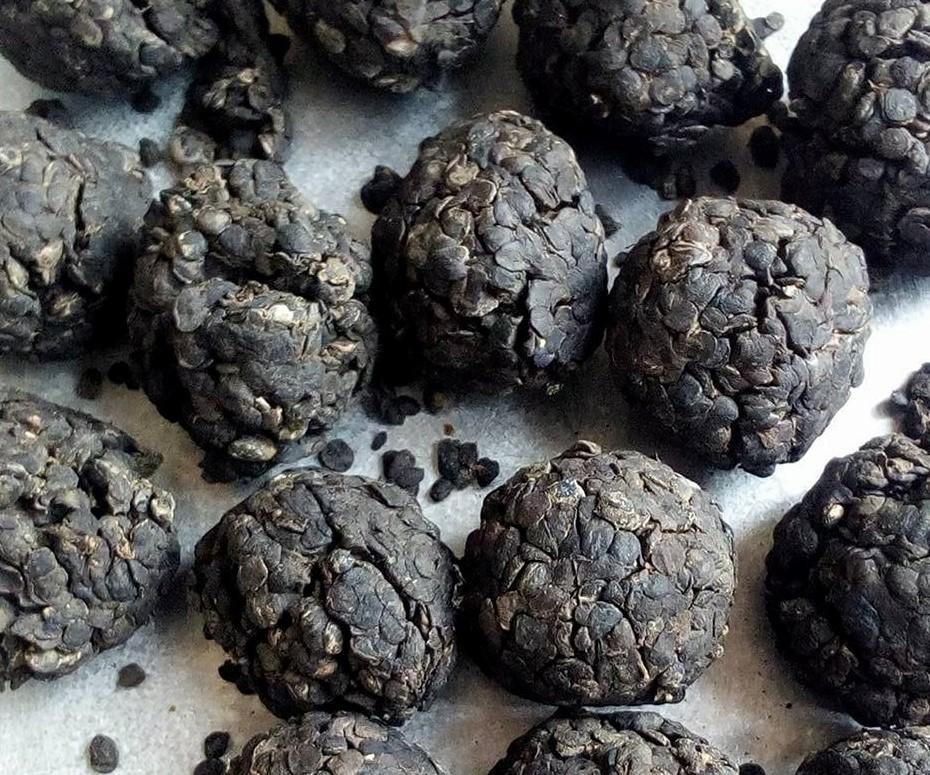Locust Beans Dawadawa, Sumbala, Dawadawa, Sumbala or soumbala is a condiment used widely across West Africa. It is usually prepared by women over the course of several days, traditionally from néré (Parkia biglobosa) seeds. The fabrication process involves boiling, cleaning and then packing away to ferment - the fermentation process giving it a pungent smell. Salt can be added to the finished product to facilitate storage life. This condiment is traditionally sold in balls or patties that can be kept for several months at a time in the case of the best quality. It is a traditional ingredient used across West Africa. Locust bean when boiled and fermented is known as dawadawa in Hausa language, Kolgo in Frafra Gurune language in Ghana. A black strong smelling tasty seasoning, rich in lipid 29 percent, protein 35 percent, carbohydrate 16 percent, a good source of protein, fat and calcium for rural dweller. African locust bean popularly used in seasoning traditional soups has shown promise in boosting cellular immunity in immune-compromised persons, as well as, in the management of diarrhoea, diabetes, and heart attack. They are used for local seasoning of soups, from dried powdered okro soup, Alefu soup, bitter-leaf soup (Onugbu in Ibo) to palm nut soup. They come with sometimes, offensive odour, but make delicious meals. Indeed, the fermented seeds of Parkia biglobosa and Parkia bicolour are used in mostly all parts of northern Ghana and the West Coast of Africa for seasoning traditional soups. They belong to the plant family Mimosaceae of the order Leguminosae. The traditional production now faces strong competition from low-quality stock cubes. Sumbala is rich in proteins and a variety of dietary minerals, which are completely absent from these bouillon cubes. In recent years, however, good quality commercial production has allowed the product to make a comeback into everyday cuisine.


